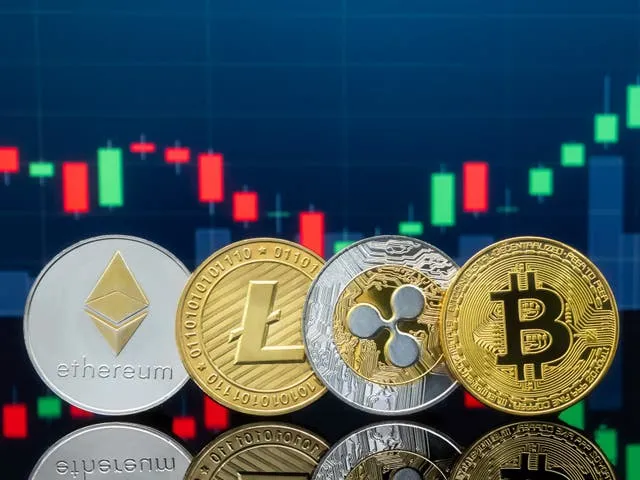Amidst the swiftly changing digital terrain, the assimilation of cryptocurrencies has garnered global interest from governments, economists, and individuals. Bitcoin’s unparalleled attributes, characterized by its decentralized nature and lack of geographical confines, unfurl intricate yet potentially revolutionary prospects for nations contending with limitations on free speech. This exposition delves into the intricacies of incorporating Bitcoin within countries curbing freedom of expression, meticulously examining the prospects and hurdles that surface under such conditions. Don’t miss the chance to explore a game-changing trading platform – it’s just a click away to Immediate Edge.
Understanding Bitcoin’s Decentralized Nature
Bitcoin, commonly hailed as the digital counterpart to gold, functions through a decentralized framework driven by blockchain technology. This decentralized structure provides individuals with the autonomy to conduct financial transactions devoid of intermediaries such as banks. This characteristic notably resonates with nations grappling with constraints on freedom of expression, as it furnishes citizens the capability to participate in economic exchanges confidentially and reliably, exempt from censorship or surveillance.
Overcoming Financial Censorship
Countries with speech restrictions often control traditional financial systems, which can lead to censorship and surveillance of citizens’ monetary activities. Bitcoin offers a solution by enabling peer-to-peer transactions that are pseudonymous, ensuring that individuals can engage in financial activities without revealing their identities. This newfound financial autonomy empowers citizens to support causes and express opinions without the fear of repercussions.
Cryptocurrencies as a Vehicle for Expression
In regions where freedom of speech is limited, the integration of Bitcoin has led to a unique phenomenon: the cryptocurrency becomes a medium of expression. Advocates of human rights and free speech have turned to Bitcoin as a way to fundraise for causes that might be suppressed by traditional financial channels. This not only provides an avenue for global support but also challenges the existing power dynamics within restrictive regimes.
Economic Empowerment and Inclusion
Bitcoin’s integration can foster economic empowerment in countries with speech restrictions. By participating in the cryptocurrency ecosystem, individuals can access global markets, freelancing opportunities, and international trade without geographic limitations. This economic inclusion can alleviate the financial hardships often imposed by restricted speech environments, enabling individuals to build better futures for themselves and their families.
Challenges and Considerations
While the integration of Bitcoin offers promising possibilities, it also comes with significant challenges. The volatile nature of cryptocurrency markets can expose users to financial risks. Moreover, governments in countries with speech restrictions may view the adoption of decentralized currencies as a threat to their control over the economy. Regulatory uncertainties and potential crackdowns on cryptocurrency usage could impede the growth of Bitcoin adoption in such regions.
Mitigating Risks through Education
Education plays a crucial role in ensuring the responsible integration of Bitcoin in countries with speech restrictions. Informing citizens about the benefits, risks, and proper usage of cryptocurrencies can empower them to make informed decisions. Collaborative efforts between governments, industry experts, and civil society can create a conducive environment for cryptocurrency adoption while addressing concerns related to financial stability and national security.
Promoting Technological Infrastructure
The successful integration of Bitcoin relies heavily on robust technological infrastructure. Countries aiming to incorporate cryptocurrencies need to invest in secure and user-friendly platforms that enable citizens to access, store, and transact with ease. This infrastructure should prioritize privacy, security, and accessibility to ensure that even individuals with limited technical knowledge can participate safely.
Global Solidarity and Support
The integration of Bitcoin in countries with speech restrictions requires global solidarity and support. International organizations, cryptocurrency communities, and advocacy groups can collaborate to provide resources, technical assistance, and financial aid to citizens seeking to utilize cryptocurrencies for positive change. This collaborative approach can amplify the impact of cryptocurrency integration and contribute to the advancement of free speech on a global scale.
Conclusion
The incorporation of Bitcoin into countries marked by limitations on free speech represents a multifaceted convergence of technology, economics, and fundamental human rights. Despite enduring obstacles, the potential gains remain compelling. Capitalizing on Bitcoin’s inherent decentralization, individuals gain the capacity to partake in financial endeavors and articulate their viewpoints without apprehensions of censorship. Nonetheless, accomplishing a seamless integration necessitates meticulous deliberation, widespread education, and harmonious coordination among invested parties. In an ever-evolving global landscape, the catalytic influence of Bitcoin within speech-constrained environments has the capacity to profoundly reshape both the realms of finance and liberty.







